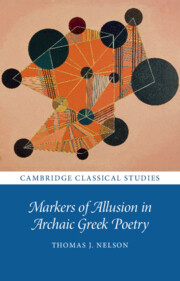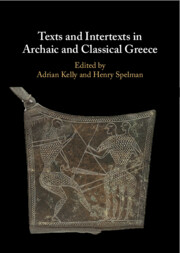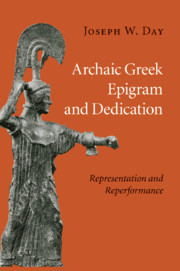Markers of Allusion in Archaic Greek Poetry
Challenging many established narratives of literary history, this book investigates how the earliest known Greek poets (seventh to fifth centuries BCE) signposted their debts to their predecessors and prior traditions – placing markers in their works for audiences to recognise (much like the 'Easter eggs' of modern cinema). Within antiquity, such signposting has often been considered the preserve of later literary cultures, closely linked with the development of libraries, literacy and writing. In this wide-ranging new study, Thomas Nelson shows that these devices were already deeply ingrained in oral archaic Greek poetry, deconstructing the artificial boundary between a supposedly 'primal' archaic literature and a supposedly 'sophisticated' book culture of Hellenistic Alexandria and Rome. In three interlocking case studies, he highlights how poets from Homer to Pindar employed the language of hearsay, memory and time to index their allusive relationships, as they variously embraced, reworked and challenged their inherited tradition.
- Covers a wide range of authors and texts from Homer to Pindar
- Combines innovative readings of individual passages with a compelling overarching argument
- Includes a thorough, accessible and up-to-date methodological introduction
Reviews & endorsements
‘The thesis of this book is big and important. … Well produced, meticulously researched, and generally free of infelicities and errors, Nelson’s book is mandatory reading for Hellenists and Latinists alike and undoubtedly will remain a fixture in bibliographies for many years to come.’ Jason S. Nethercut, American Journal of Philology
Product details
May 2023Adobe eBook Reader
9781009086059
0 pages
This ISBN is for an eBook version which is distributed on our behalf by a third party.
Table of Contents
- I. Introduction
- II. The Pre-Alexandrian footnote
- III. Poetic Memory
- IV. Time for allusion
- V. Epilogue.






